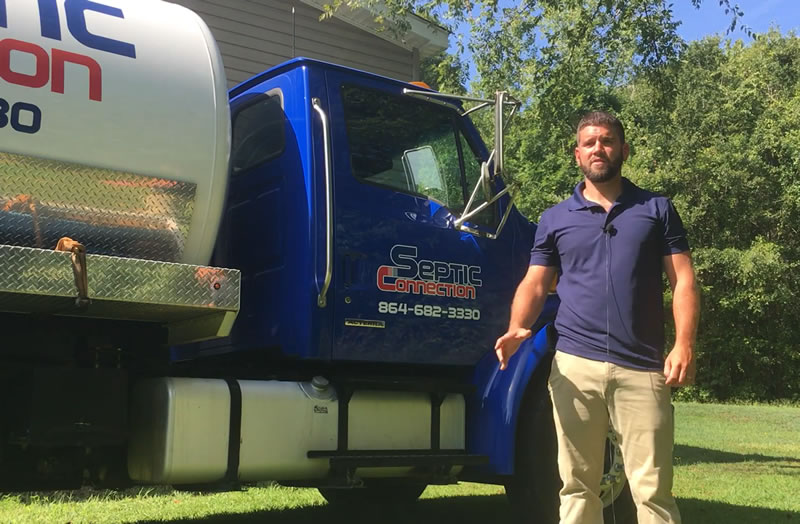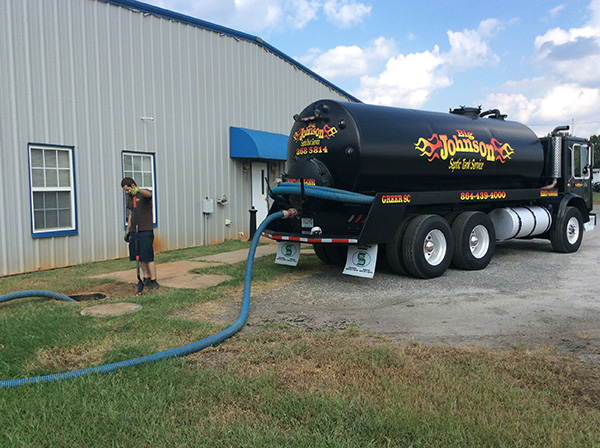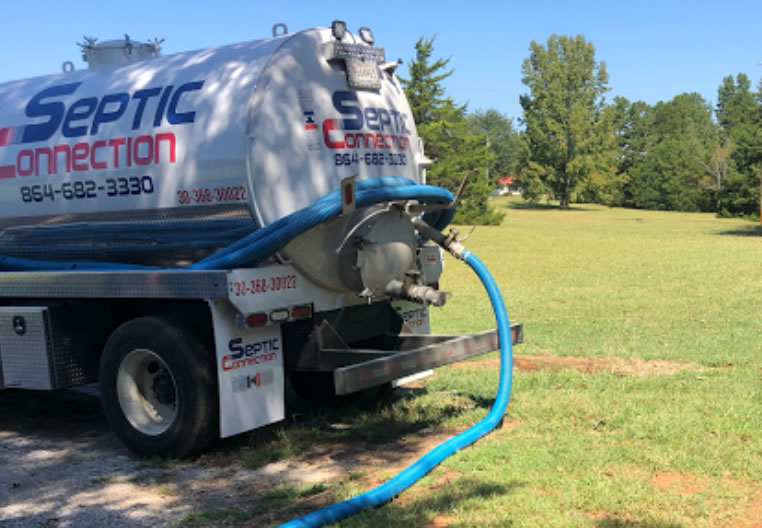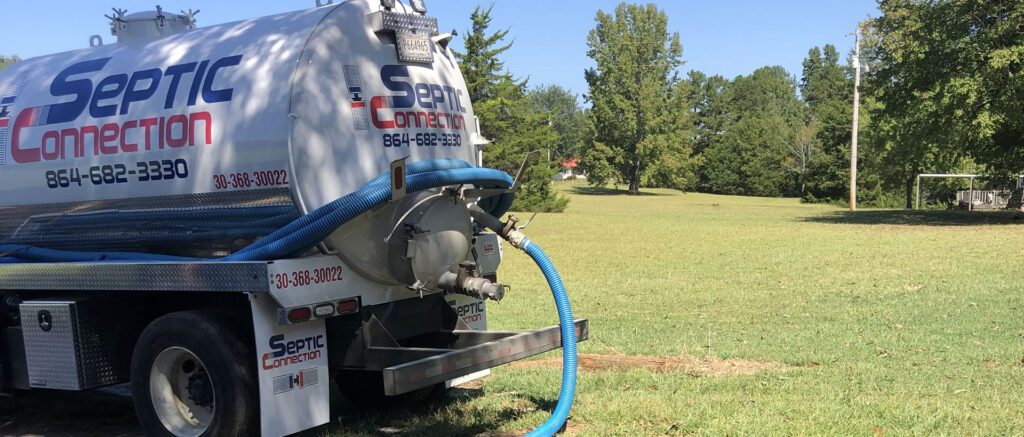If you’re a resident of Greenville and in need of septic tank pumping services, you’ve come to the right place. This article will guide you through the process of finding the best septic tank pumping services in Greenville to ensure the health and functionality of your septic system. From understanding the signs that indicate it’s time for pumping to choosing a reliable and experienced company, we’ve got you covered. Say goodbye to septic tank troubles and hello to a well-maintained and smoothly running system. Let’s get started!

Why Septic Tank Pumping is Important
Septic tank pumping is an essential maintenance task that every septic system owner should prioritize. Regular pumping helps prevent overflowing and backups, maintains proper functionality, and prevents costly repairs.
Preventing overflowing and backups
One of the primary reasons why septic tank pumping is important is to prevent overflowing and backups. Over time, your septic tank accumulates solid waste and sludge. If the tank is not pumped regularly, the solid waste can build up and fill the tank, leading to a blockage. When this happens, wastewater has nowhere to go but back up into your home or property. This can result in messy and unsanitary backups, causing inconvenience and potential health hazards.
Maintaining proper functionality
Regular septic tank pumping is crucial for maintaining the proper functionality of your septic system. When the tank becomes full, it can no longer effectively separate solids from liquids. This can lead to the clogging of drainpipes and the leach field. By keeping up with septic tank pumping, you ensure that your septic system operates efficiently, preventing unnecessary strain and potential damage.
Preventing costly repairs
Ignoring the need for septic tank pumping can lead to costly repairs down the road. When a septic system is not maintained properly, it can lead to a variety of issues such as drainfield failure, damage to the septic tank, or the need for a complete system replacement. These repairs can be expensive and time-consuming to fix. By investing in regular septic tank pumping, you can avoid these costly repairs and prolong the lifespan of your septic system.
Understanding the Septic Tank Pumping Process
To fully understand the importance of septic tank pumping, it’s essential to be familiar with the process involved.
Assessment of tank size and condition
Before beginning the septic tank pumping process, a professional technician will assess the size and condition of your tank. This helps determine the appropriate pumping schedule and ensures that the entire tank is pumped thoroughly.
Locating and opening the septic tank
Once the assessment is complete, the technician will locate the septic tank and open it. This may involve removing the lid or access cover, which is generally buried underground. Special care is taken to ensure that the lid is opened safely and without causing any damage.
Pumping out the solids and liquids
Using a powerful vacuum truck, the technician will pump out the solids and liquids from the septic tank. The vacuum truck creates a strong suction that removes all the waste inside the tank, including solid waste, sludge, and scum.
Inspecting for any issues or damage
While pumping out the tank, the technician will also inspect the interior for any signs of damage or issues. This may include checking for cracks, leaks, or any other structural problems that could impact the functionality of the septic system.
Closing and securing the tank
Once the tank has been completely pumped and inspected, the technician will close and secure the tank properly. This ensures that the tank remains sealed and prevents any potential contamination or odors from escaping.
Signs That Your Septic Tank Needs Pumping
It’s important to pay attention to signs that indicate your septic tank needs pumping. Recognizing these signs early can help you avoid backups and costly repairs.
Frequent backups and slow draining
If you notice that your drains are frequently backing up or draining slowly, it may be a sign that your septic tank is full and in need of pumping. Backup in the form of wastewater coming back up through drains is a clear indication that your septic system is overwhelmed and cannot handle the volume of waste.
Foul odor around the property
A foul odor around your property, especially near the location of your septic tank, can be a strong indicator that it’s time for septic tank pumping. When a septic tank becomes full, it can emit an unpleasant smell that is difficult to ignore.
Pooling water or lush grass over the drain field
If you notice areas of pooling water or lush, green grass over your drain field, it may be a sign of a septic tank that needs pumping. When the tank is full, wastewater may not be able to properly drain into the drain field, causing these visual cues.
Gurgling sounds coming from toilets or drains
Gurgling sounds coming from your toilets or drains can indicate that your septic tank is full and needs immediate attention. These sounds occur when air is trapped in the plumbing system due to a clogged or full septic tank.
Increasing nitrate levels in well water
If your property has a well, an increase in nitrate levels in the well water can be a sign of a septic tank that needs pumping. When a septic tank is full, excessive amounts of nitrates can leach into the surrounding environment, including well water.
Factors Affecting the Frequency of Pumping
The frequency of septic tank pumping depends on various factors that vary from household to household.
Number of occupants in the household
The more people living in a household, the more waste is generated, leading to a faster fill-up of the septic tank. Larger households with multiple occupants often require more frequent pumping compared to smaller households.
Tank size and capacity
The size and capacity of your septic tank also play a significant role in determining the frequency of pumping. Smaller tanks will fill up more quickly and require more frequent pumping, while larger tanks can accommodate more waste and may not need pumping as frequently.
Water usage habits
Water usage habits impact the frequency of septic tank pumping. Excessive water usage, such as long showers, frequent laundry, or running the dishwasher multiple times a day, can overload the septic system and require more frequent pumping.
Type of waste disposal system
The type of waste disposal system you have can affect pumping frequency. Homes with garbage disposals tend to generate more solid waste, which can fill up the septic tank more quickly.
Presence of garbage disposal
The presence of a garbage disposal can increase the amount of solid waste that enters the septic tank. As a result, septic tanks in homes with garbage disposals often require more frequent pumping to prevent clogs and backups.

Choosing a Reliable Septic Tank Pumping Service
When it’s time to have your septic tank pumped, it’s crucial to choose a reliable and professional septic tank pumping service. Here are some important factors to consider:
Researching local septic tank pumping companies
Start by researching local septic tank pumping companies in your area. Look for companies with a good reputation and experience in the industry.
Checking for proper licensing and certifications
Ensure that the septic tank pumping service you choose has the necessary licensing and certifications. This ensures that they meet the required standards and regulations for operating in the industry.
Reading customer reviews and testimonials
Read customer reviews and testimonials to get an idea of the service quality and customer satisfaction. Positive reviews from past customers are a good indication of a reliable septic tank pumping service.
Requesting quotes and comparing prices
Obtain quotes from multiple companies and compare prices. However, keep in mind that the cheapest option may not always be the best. Consider the reputation and experience of the company in addition to the price.
Inquiring about the equipment and techniques used
Ask about the equipment and techniques used by the septic tank pumping service. A reputable company will use modern and efficient equipment to ensure thorough pumping and proper disposal of waste.
Preparing for Septic Tank Pumping
Proper preparation is essential to ensure a smooth and efficient septic tank pumping process.
Locating and exposing the tank lids
Before the septic tank pumping service arrives, locate and expose the tank lids. This will save time for the technicians and ensure easy access to the septic tank.
Clearing the area around the septic tank
Clear any obstructions or debris around the septic tank area. This will allow the technicians to work efficiently and safely without any hindrances.
Ensuring proper access for the pumping truck
Make sure there is sufficient space for the pumping truck to approach the septic tank. Remove any obstacles such as vehicles or large objects that may block the truck’s path.
Protecting nearby plants and landscape
Take precautions to protect nearby plants and landscape during the septic tank pumping process. The powerful vacuum used during pumping can potentially damage or uproot plants if they are too close to the tank.

What to Expect During Septic Tank Pumping
Understanding what to expect during the septic tank pumping process can help alleviate any concerns or uncertainties.
Professional inspection of the tank
Before pumping begins, a professional technician will inspect the tank for any issues or damage. This step ensures that any problems are identified and resolved promptly.
Efficient pumping process to remove waste
Using a powerful vacuum truck, the technician will begin the pumping process. The vacuum truck creates a strong suction that removes all the waste, including solid waste, sludge, and scum, from the septic tank.
Proper disposal of the waste at approved facilities
The waste removed from the septic tank is transported to approved facilities for proper disposal. Reputable septic tank pumping services adhere to strict environmental guidelines to ensure responsible waste disposal.
Cleaning and backflushing the septic system
After the pumping is complete, the septic system may be cleaned and backflushed. This helps remove any remaining residue and ensures optimal functionality of the system.
Testing the tank’s functionality
Before concluding the process, the technician may perform tests to ensure that the septic tank is functioning properly. This may include checking for leaks, monitoring water flow, or inspecting the drain field.
Maintaining Your Septic System After Pumping
After septic tank pumping, it’s important to maintain your septic system properly to avoid future issues.
Proper waste disposal practices
Practice proper waste disposal habits to prevent the accumulation of solid waste in your septic tank. Avoid flushing non-biodegradable items such as wipes, diapers, or feminine hygiene products, as they can clog the system.
Regular inspection and maintenance schedule
Establish a regular inspection and maintenance schedule with a professional septic system service provider. Regular inspections help identify any potential issues early on and ensure the proper functioning of your septic system.
Avoiding excessive water usage
Be mindful of your water usage to prevent overloading your septic system. Repair any leaks promptly, use efficient appliances, and avoid excessive water usage habits to reduce strain on your septic system.
Using septic-safe cleaning products
Use septic-safe cleaning products to avoid introducing harmful chemicals into your septic system. Harsh chemicals can disrupt the natural balance of bacteria in the tank, leading to system failure.
Protecting the drain field
Take measures to protect your drain field, such as avoiding parking or heavy machinery on it, and not planting trees or shrubs with invasive root systems nearby. Protecting the drain field helps maintain its functionality and prevents costly repairs in the future.

Common Mistakes to Avoid with Septic Tank Pumping
Avoiding these common mistakes can help ensure the effectiveness and longevity of your septic system.
Ignoring signs of septic tank issues
Ignoring signs such as backups, foul odors, or gurgling sounds can lead to more severe septic tank issues. Pay attention to these signs and address them promptly to avoid further damage.
Delaying pumping and maintenance
Delaying septic tank pumping and maintenance can result in serious issues and costly repairs. Establish a regular pumping schedule and follow through with maintenance to keep your septic system in optimal condition.
Using harsh chemicals or additives
Avoid using harsh chemicals or additives in your septic system. These products can disrupt the natural balance of bacteria in the tank, leading to system failure.
Overloading the system with excessive water
Excessive water usage can overload your septic system and lead to premature failure. Use water efficiently and avoid overloading the system with excessive usage.
Neglecting professional inspection and pumping
Regular professional inspection and pumping are crucial for the health and longevity of your septic system. Neglecting these essential maintenance tasks can result in costly repairs and system failure.
Frequently Asked Questions About Septic Tank Pumping
Here are answers to some frequently asked questions about septic tank pumping:
How often should septic tanks be pumped?
The frequency of septic tank pumping depends on various factors such as the size of the tank, the number of occupants in the household, and water usage habits. On average, septic tanks should be pumped every 2 to 5 years. However, it is best to consult with a professional to determine the optimal pumping schedule for your specific septic system.
What are the signs of a full septic tank?
Signs of a full septic tank include frequent backups and slow draining, foul odor around the property, pooling water or lush grass over the drain field, gurgling sounds from toilets or drains, and increasing nitrate levels in well water.
Can I pump my septic tank myself?
Septic tank pumping requires specialized equipment and knowledge. It is best to leave this task to trained professionals who have the experience and expertise to perform the job safely and efficiently.
What happens to the waste after pumping?
The waste removed from your septic tank is transported to approved facilities for proper disposal. Reputable septic tank pumping services adhere to strict environmental guidelines to ensure responsible waste management.
What if my septic tank cannot be located?
If you are unable to locate your septic tank, it is advisable to seek professional assistance. Experienced septic tank pumping services have the tools and knowledge to help locate and access septic tanks, even in challenging situations.

